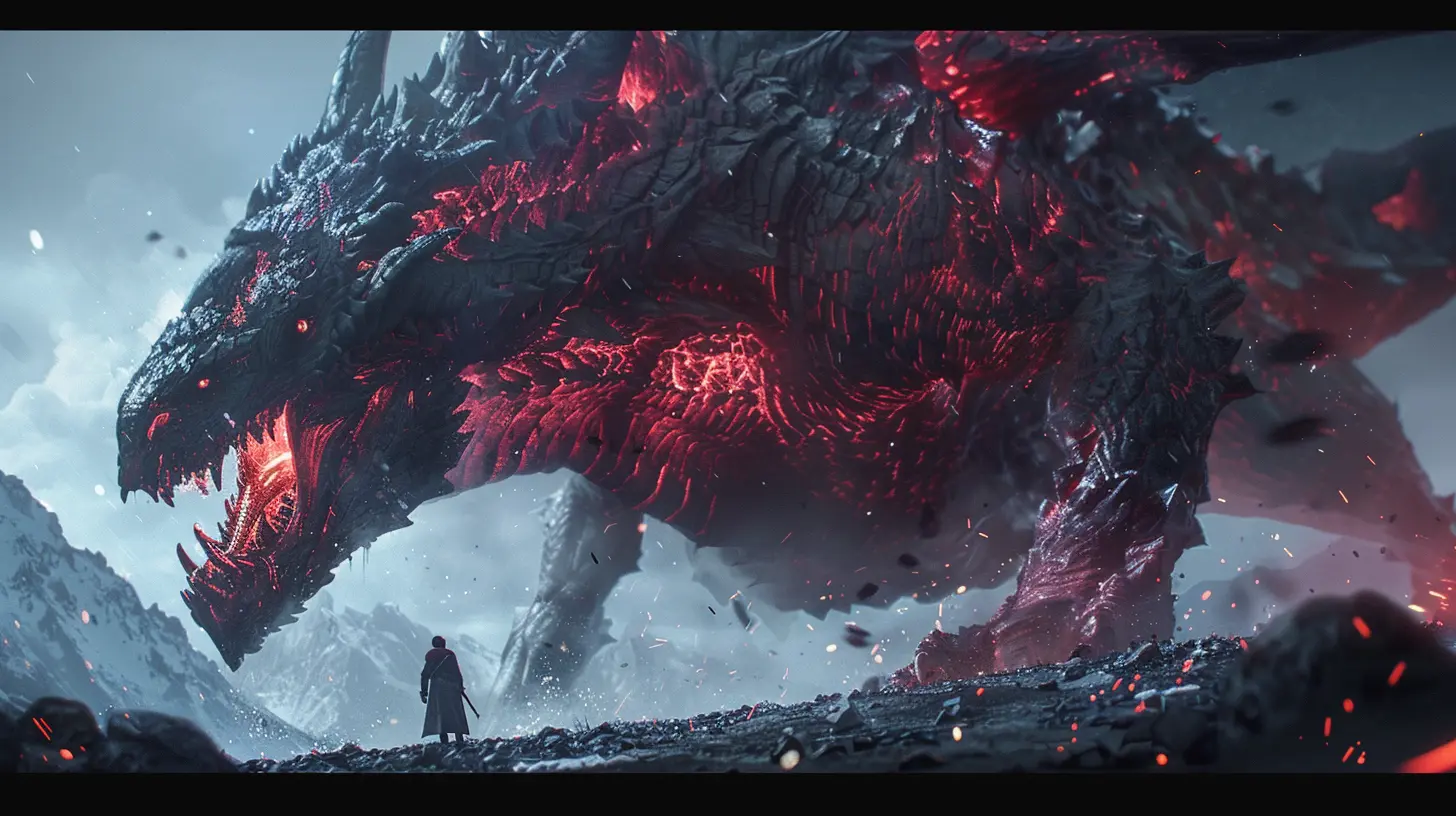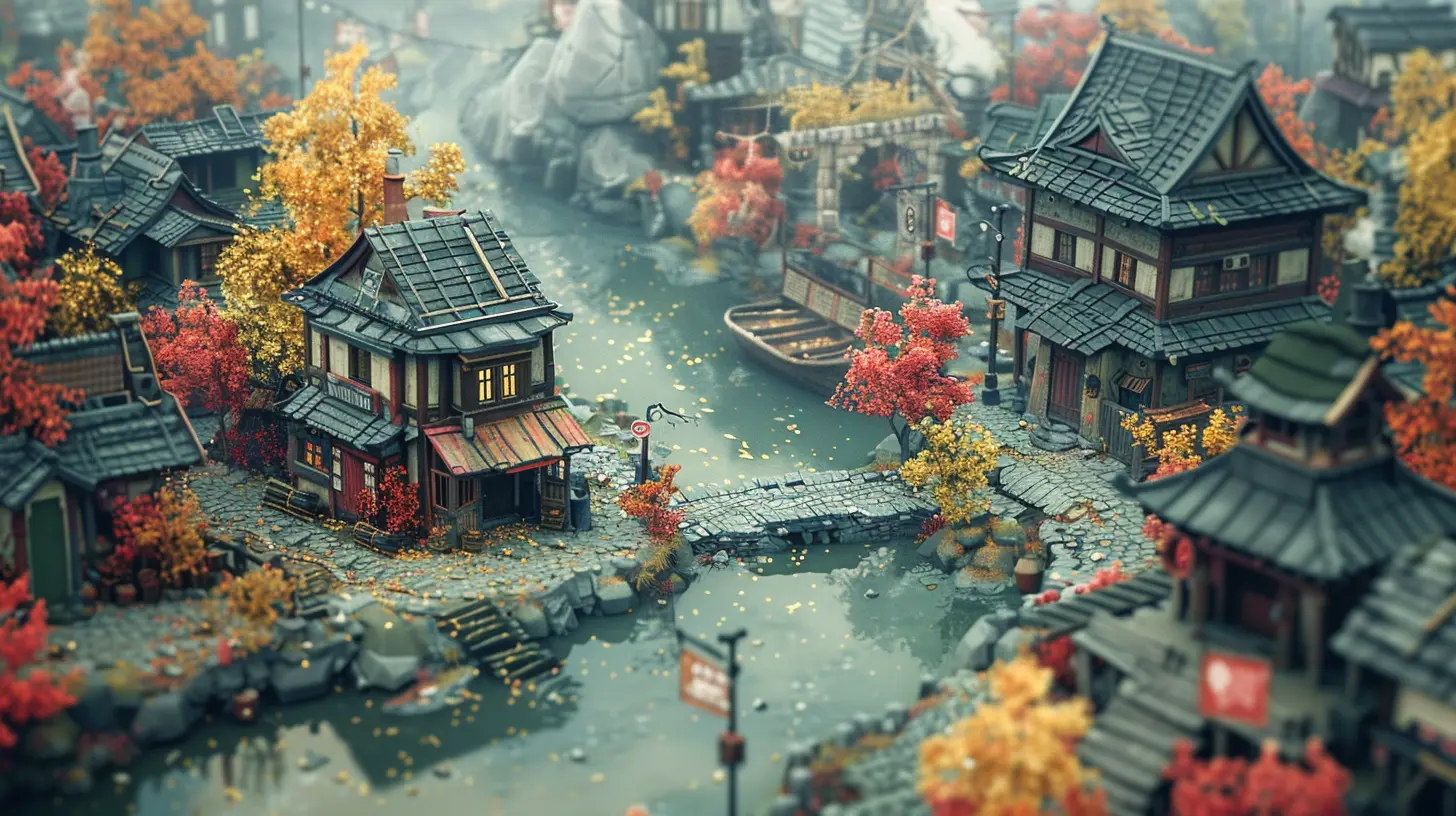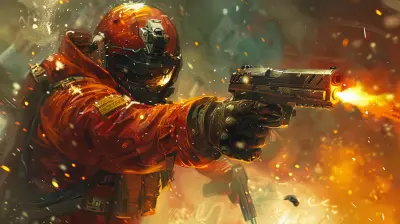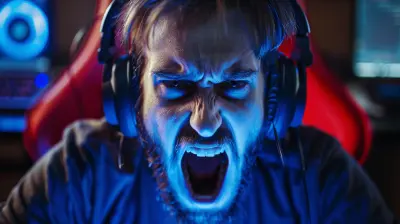Should Every Game Include a Demo
21 October 2025
Imagine standing at the edge of a digital cliff. Below lies a mysterious realm filled with adventure, action, and endless possibilities—but here's the kicker: you'll only know if it’s worth the leap after you've already jumped. That's how buying a game without a demo feels.
So here's the million-dollar question—Should every game include a demo?
Short answer? Heck yes.
But let’s not just toss opinions like coins in a wishing well. Let’s grab a controller, dive headfirst into this pixelated pool, and really look at the why.
🎮 The Digital Test Drive: What's a Game Demo, Really?
Think of a game demo as a test drive for your thumbs. Just like you wouldn’t buy a car without hearing the engine purr, you shouldn’t have to throw down $60+ for a game without pressing start first.A demo gives players a tiny bite of the full feast—a slice of gameplay, a peek into mechanics, and a whiff of that juicy plot. It’s the handshake before the contract, the flirty wink before the first date.
But is it just a nice-to-have, or has it quietly become a gamer's right?
🕹️ Why Game Demos Matter More Now Than Ever
Let’s be real. Gaming ain't what it used to be.Back in the day, picking up a new title was almost a spiritual experience. You had box art, instruction manuals that smelled like adventure, and rental stores where you'd sample without commitment. Fast forward to today, and it’s a different world.
- Digital-only launches? Check.
- $70 price tags? Yep.
- 30GB+ downloads with no refunds? You bet.
With modern games demanding more money, time, and storage space, demos have become the trust fall between developer and player. And without them? We're all just blindly diving into the unknown.
👀 Transparency Builds Trust (And Hype)
You know what builds hype better than pre-rendered trailers and curated screenshots?Actual gameplay.
Publishers spend millions on marketing, but ironically, it's often a barebones 15-minute demo that builds more excitement—and trust—than a year’s worth of teasers.
- Demos offer proof.
They show us the real deal—how the controls feel, how the world moves, and whether it’s a joyride or a buggy mess.
- They cut through the BS.
No more wondering if the combat is fluid or if the story’s compelling. You know, because you played it.
This kind of honesty? That’s rare in the entertainment world. And it’s powerful.
💔 Buyer’s Remorse: The Game Industry’s Dirty Little Secret
Let me paint a picture.You scrape together some cash, pre-order a promising title, download all 90 gigs of it, and then… thud. It’s clunky. The dialogue’s cringe-worthy. And the gameplay? Ugh, repetitive as a broken record.
No demo. No refund. No fun.
Now you're stuck with a digital paperweight and a growing bitterness toward the devs. Sound familiar?
Demos could've prevented all that. It's like tasting the soup before ordering the bowl. A quick preview to see if it hits right or needs more spice.
🧠 The Psychology of Commitment: Why Players Love Demos
Here’s something cool—science backs this up.When players try a demo and enjoy it, their brain starts investing. They get attached, feel ownership, and want to finish what they started. It’s like cracking open a novel and needing to know how it ends.
- Demos create emotional momentum.
- They foster anticipation, not skepticism.
- They turn maybe-buyers into die-hard fans.
And you know what else? They make people talk. Word-of-mouth gets louder when fans have experienced the game, not just watched a flashy trailer.
🧪 Indie Developers and the Demo Power Play
Now let’s shift focus for a sec.Big AAA studios may shy away from demos, fearing leaks or bad first impressions. But indie devs? They live for demos.
Why?
Because a killer demo can be a golden ticket. It’s their elevator pitch to the world, their proof of concept wrapped in charm. Some entire games have gone viral based on a single demo session shared on Twitch or YouTube.
For smaller studios with tight budgets, a demo isn’t just a preview—it’s their stage, their spotlight, their moment to shine.
😬 The Counter-Argument: Why Some Devs Say No to Demos
Okay, okay—let’s not be all sunshine and power-ups. There are reasons why some developers shy away from demos, and it’s only fair to explore that side too.1. They’re Expensive and Time-Consuming
Crafting a good demo isn’t as simple as slicing out Level 1 and calling it a day. Devs often need to polish specific sections, squash bugs, and sometimes create entirely separate builds. That’s time and energy not spent on the main game.2. First Impressions Can Be Dangerous
Some games have a slow burn. They take hours to hit their stride. A 10-minute trial might not capture the heart of the experience—and could actually turn off potential players instead of reeling them in.3. Fear of Leaks
Especially with story-rich or competitive titles, a leaked demo can spill secrets or give an unfair edge. And that’s a gamble not all studios want to take.But here’s the thing...
Are those concerns bigger than the value of trust, engagement, and credibility that a demo can provide?
🔄 Alternative Options: What If Full Demos Aren’t Doable?
So maybe a full-blown demo isn't always practical. Fair enough. Let’s talk middle ground.✅ Time-Limited Trials
Let folks play the full game—but only for 2 hours. Enough to get a feel, not enough to spoil the goods.✅ Early Access and Betas
Sure, they're a bit more chaotic, but they serve a similar purpose. Letting the community test drive and give feedback? That’s a two-for-one deal.✅ Interactive Trailers
Imagine a trailer where you can pause and play around. Mess with controls. Choose dialogue. Boom—mini demo vibes without a full download.So yeah, plenty of creative solutions exist. It’s not black-and-white, all-or-nothing.
💬 Gamers Speak: “Let Us Try Before We Buy!”
Scroll through any gaming subreddit or forum, and you’ll see it over and over again—gamers crave demos.They're tired of getting burned by overhyped trailers and broken promises. They want to feel the buttons, taste the story, and understand what they’re stepping into.
Reviews help, sure, but someone else’s opinion isn’t the same as your own hands-on experience. Demos give you the power back.
🌟 Final Verdict: Should Every Game Include a Demo?
If we’re talking should—yes. Unequivocally.Every game deserves the chance to show what it’s got. And every player deserves the chance to know what they’re getting into.
Demos are that bridge. They’re the handshake between creator and player, the sneak peek that says, "You decide."
Sure, it's not always easy. Sure, some games may not lend themselves well to bite-sized chunks. But at the end of the day? A demo is more than just marketing fluff—it’s an act of respect.
Respect for the craft.
Respect for the player.
Respect for the journey.
And in an industry that’s rapidly evolving, that kind of respect might just be the secret weapon needed to stand out from the crowd.
🎤 Now It’s Your Turn
What do you think?Have demos helped you dodge a bullet—or fall in love with an unexpected gem? Do you think they're essential or just a nice bonus?
Drop your thoughts in the comments. Let’s spark a conversation—because in the end, we’re all just trying to find the games that move us.
And hey, a little demo never hurt anyone.
all images in this post were generated using AI tools
Category:
Game DemosAuthor:

Emery Larsen
Discussion
rate this article
2 comments
Patience McCallum
Absolutely! Demos let us explore new games without commitment, sparking excitement and helping us find hidden gems. Who doesn’t love a sneak peek?
March 4, 2026 at 4:30 AM
Zevin Hughes
Great article! Demos can significantly enhance player experience by allowing them to sample gameplay before committing. It builds trust and excitement. While not every game may need one, offering a demo could be a valuable option for many developers.
October 22, 2025 at 3:07 AM

Emery Larsen
Thank you! I appreciate your insight on how demos can enhance trust and excitement for players. They can indeed be a valuable tool for many developers.


